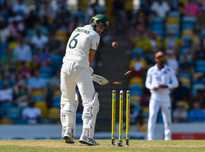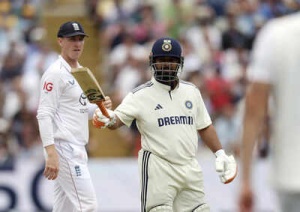Former Highlanders flanker and Tasman captain Shane Christie has died at the age of 39 due to concussion struggles. The rugby community is mourning the loss of their former player, who had previously admitted to battling ongoing concussion-related issues.
Christie, who played 29 matches for the Highlanders between 2014-2016 and captained Tasman to its first NPC title in 2013, retired from rugby due to persistent concussion-related symptoms. His death follows a long period of personal health struggles, including mental health deterioration believed to be linked to traumatic brain injury sustained during his playing career.
A growing pattern in sports: What is CTE?
Christie was a friend to the former Blues and Maori, all blacks halfbacks Billy Guyton, who died at the age of 33, back in 2023, a year later after being diagnosed posthumously with chronic traumatic encephalopathy (CTE), a neurodegenerative brain condition caused by repetitive head injuries. Following Christie’s friend’s death, he publicly expressed his concerns that he was suffering from the same condition in a series of social media posts back in 2024.
Christie in March wrote, “As I now understand the effects that concussion had on Billy’s brain and witnessing the drastic changes in his life, I can only assume that I’ve developed CTE myself,” Christie wrote in March.”
CTE is a progressive brain disease that is caused by repeated head trauma, including both concussions and sub-concussive hits. Symptoms may not occur until after years of injuries but it can show themselves before in the form of:
- Memory loss
- Mood swings
- Depression and anxiety
- Suicidal thoughts
- Impaired thinking and judgement
How can concussions become serious
While a single concussion may resolve with ample amount of rest, repeated concussions can cause cumulative brain damage.
It is most commonly seen in athletes, especially in contact sports such as football, rugby, the risk increases when the players return to play too early without adequate rest and treatment. Symptoms might not be that obvious but can still stress the brain.
Medical studies show that even if the injury is mild, but is to the head, it can alter brain function, contribute to neuroinflammation and accelerate early cognitive decline.
Post-concussion syndromeHeadaches, fatigue, mood changes, and memory problems last months or years after the initial injury.
Call for action
Christie used his personal experience to raise awareness of the long-term health risks that comes with brain injuries, especially if one is a player. He spoke out about the lack of medical protocols and follow up. In his words, “We’re not getting treated with CTE diagnosis or even probable diagnosis. Instead of getting daily plans for recovery, we’re just told there’s nothing you can do,” he wrote. He always believed that stronger medical infrastructure and early intervention can prevent others from suffering in silence.
What to do in case of a head injury
In case of a head injury, seek immediate medical attention, avoid physical activity, monitor for symptoms like confusion or vomiting, and do not ignore even mild signs of concussion.


 Patience Urged for Australia's Rebuilt Top Order Amidst Test Transition
Patience Urged for Australia's Rebuilt Top Order Amidst Test Transition
 Kohli's Composure Under Pressure: Sharma Credits Mental Fortitude for Key Innings
Kohli's Composure Under Pressure: Sharma Credits Mental Fortitude for Key Innings
 West Indies Coach Daren Sammy Fined, Reprimanded for Umpire Criticism
West Indies Coach Daren Sammy Fined, Reprimanded for Umpire Criticism
 Bangladesh Coach Phil Simmons Leaves Sri Lanka Tour for Medical Check-up in London
Bangladesh Coach Phil Simmons Leaves Sri Lanka Tour for Medical Check-up in London
 Rishabh Pant: Greg Chappell Hails India Star as Cricket Revolutionary
Rishabh Pant: Greg Chappell Hails India Star as Cricket Revolutionary
 Pant's Fearless Hitting vs. England Draws Adam Gilchrist Comparisons From Greg Chappell
Pant's Fearless Hitting vs. England Draws Adam Gilchrist Comparisons From Greg Chappell
 IND vs ENG, 2nd Test: Rishabh Pant's Composed Reply Silences Harry Brook's Sledge About Fastest Century
IND vs ENG, 2nd Test: Rishabh Pant's Composed Reply Silences Harry Brook's Sledge About Fastest Century
 Neeraj Chopra Tips Jasprit Bumrah for Javelin Success, Cites Cricketer's Strength and Fitness
Neeraj Chopra Tips Jasprit Bumrah for Javelin Success, Cites Cricketer's Strength and Fitness
 Gambhir Backs India's Lower Order Despite Headingley Test Collapse, Cites Costly Dropped Catches
Gambhir Backs India's Lower Order Despite Headingley Test Collapse, Cites Costly Dropped Catches
 Carlsen on Gukesh's World Champion Status: 'Impressing Me Still a Question'
Carlsen on Gukesh's World Champion Status: 'Impressing Me Still a Question'